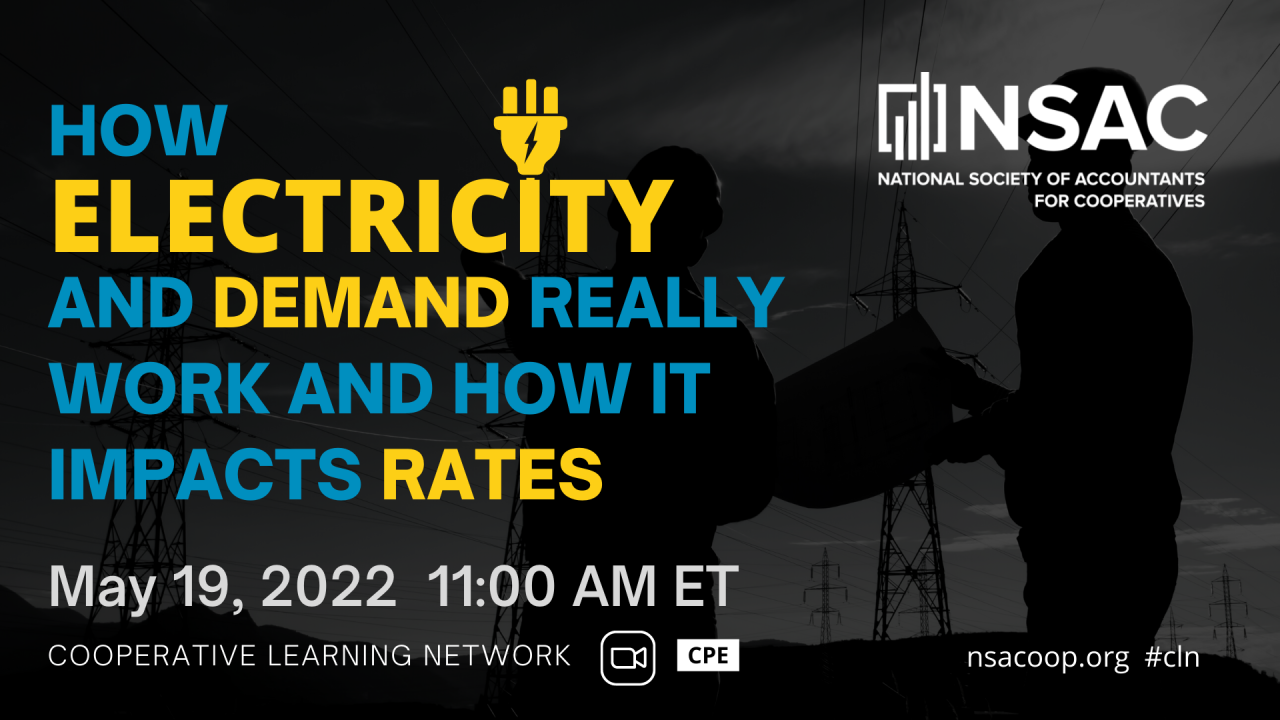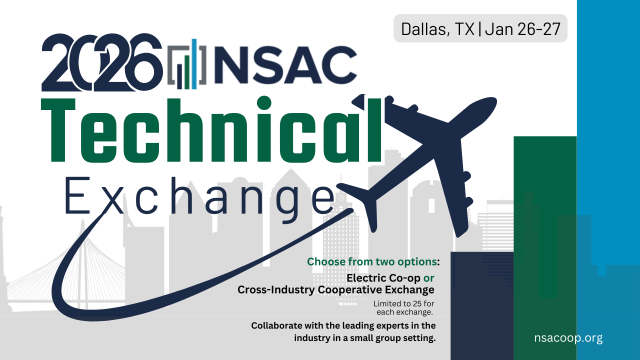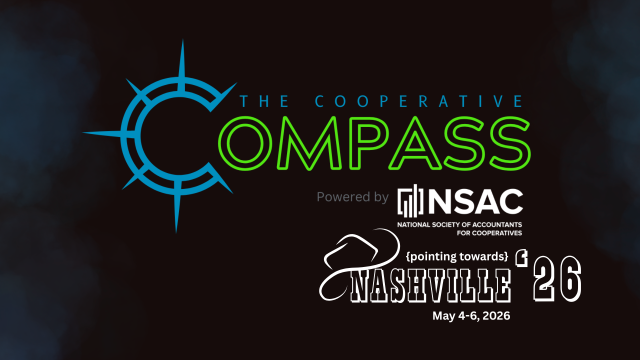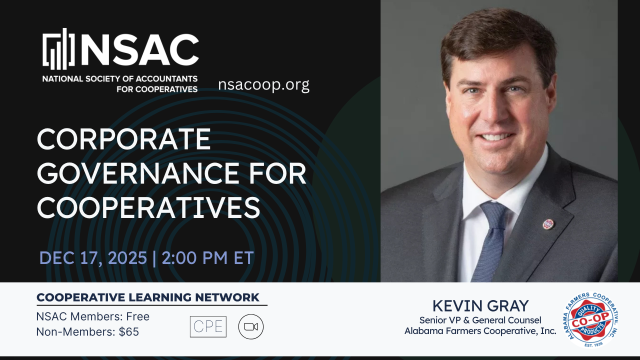
How Electricity and Demand Really Work & How It Impacts Rates
Zoom
Field of Study: Specialized Knowledge
CPE: 1 Credit Hour
As cooperatives consider moving from traditional to more innovative rate design structures, it is increasingly important to understand the different billing units required for each innovative design. Three-part, Four-part, Time-of-use, Critical peak, Super off-peak and other innovative rate designs require an understanding of and access to a range of billing units. These include Non-coincident demands, Coincident demands, Time-based energy usage, KVar, and more. In this encore presentation from the session at TFACC 2021, Mike Searcy will describe some of the billing units required for innovative rate designs, and explore some of the challenges involved in obtaining, using, and explaining them to members.
After the session, participants will have a better understanding of:
- Recovering Costs As Costs are Incurred – provides revenue stability and maximizes fairness in rate designs
- Traditional Two Part Rates – can still be effective today - but there are many pros and cons
- Three Part Rates for Residential – can be based on recovering fixed power cost or fixed distribution cooperative costs – and there are many pros and cons
Presenter: Mike Searcy, Managing Consultant, Guernsey
With 40 years of cooperative experience, Mike Searcy has assisted cooperatives in more than 15 states (including states with regulatory commissions and those without) spread across the country to develop rate designs based on cost-of-service studies. He has provided training in the process for a variety of cooperative boards, management and staff and participated in the development of NRECA/CFC’s recently published Retail Rate Guide. Searcy began his career in 1982 at an electric cooperative. He serves as a Managing Consultant at Guernsey, a national Consulting, Engineering and Architecture firm for over 17 years, providing management, cost of service, rate design and energy efficiency consulting to public power clients, both for their core businesses as well as their subsidiary functions.
Moderator: Bill Erlenbush, CPA, NSAC Director of Education
Bill Erlenbush spent his entire career working in cooperative accounting at GROWMARK. His work experience includes all aspects of order control and billing, accounts receivable/payable, financial accounting, and tax. As compliance officer, he had responsibility for the administration of the compliance and ethics program at GROWMARK and its subsidiaries and retail divisions. In addition, he was been involved in negotiating major acquisitions for GROWMARK. His educational background includes a Bachelor of Science degree in Accountancy from the University of Illinois and an MBA from Illinois State University. He is a Certified Public Accountant. Bill is an active member in many industry, professional, and community organizations. He is past president of the Mclean County United Way Board of Directors as well as the past president of the Heartland Community College Foundation Board of Directors.
CPE Credits
The National Society of Accountants for Cooperatives (NSAC) is registered with the National Association of State Boards of Accountancy (NASBA) as a sponsor (#103068) of continuing professional education on the National Registry of CPE Sponsors. State boards of accountancy have final authority on the acceptance of individual courses for CPE credit. Complaints regarding registered sponsors may be addressed to the National Registry of CPE Sponsors through its website: www.nasbaregistry.org.



